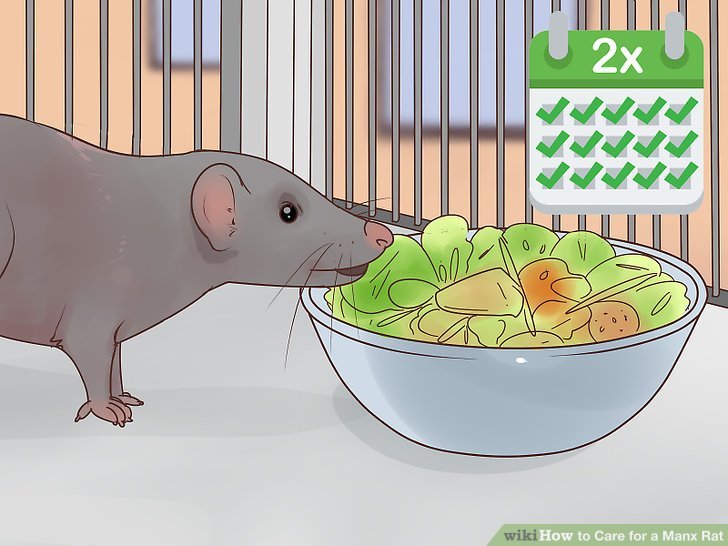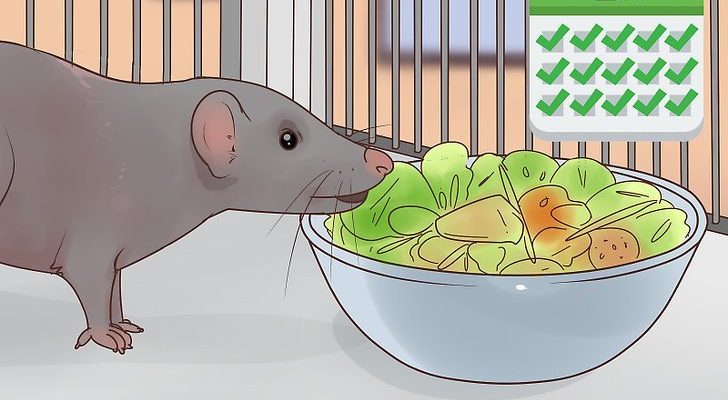
Caring for a Manx rat goes beyond just housing it in a cage. You’ll need to ensure it has the right diet, a cozy habitat, and handling techniques that keep both of you happy. If you’ve ever wondered what it takes to keep a Manx rat healthy and engaged, let’s dive in together.
Understanding Your Manx Rat’s Diet
Keeping your Manx rat healthy starts with its diet. Just like us, these little guys need a balanced meal plan to thrive. The base of their diet usually consists of a high-quality commercial rat food. Look for one that has a good mix of proteins, fruits, and vegetables. Quality matters here, so don’t skimp on that!
You might be wondering, “What about treats?” Well, a few small treats can go a long way. Fresh fruits and vegetables like apples, carrots, and spinach make great snacks. Just remember to introduce new foods slowly to avoid upsetting their little tummies.
Here’s a simple breakdown of a Manx rat’s ideal diet:
- Commercial Rat Food: As a staple, choose pellets rich in nutrients.
- Fresh Veggies: Kale, broccoli, and carrots can be daily favorites.
- Fruits: Limit fruits to a couple of times a week—berries and apples are good choices.
- Protein: Occasional bits of cooked eggs or chicken can be a nice treat.
Don’t forget to provide fresh water every day. A water bottle with a sipper tube works best since it keeps the water clean and reduces spills.
Creating a Comfortable Habitat
Now that you’ve got the diet sorted out, let’s talk habitat. Your Manx rat needs a safe and comfortable living space. A spacious cage is essential. Aim for a multi-level cage that allows them to climb and explore. Good ventilation is also crucial to keep the air fresh.
It’s all about making it feel like home for your furry friend. Add lots of bedding—like aspen shavings or paper-based products—where they can burrow. Also, consider including various toys and hiding spots. Cardboard tubes, hammocks, and chew toys not only keep them entertained but also support healthy teeth.
Here’s a list of key elements that make their habitat inviting:
- Space: At least 2 cubic feet of space for each rat.
- Bedding: Safe, absorbent materials like aspen shavings.
- Toys: Chew toys, tunnels, and climbing structures for stimulation.
- Hiding Places: Small boxes or structures where they can feel secure.
Keeping the cage clean is also crucial. Spot clean daily and do a full clean at least once a week to prevent odors and maintain a healthy environment for your Manx rat.
Handling Your Manx Rat with Care
Handling your Manx rat is just as important as providing food and habitat. They can be skittish little creatures, especially at first, so gentle handling is key. Start by letting your rat get used to your presence. Sit near their cage, speak softly, and let them come to you on their own terms.
Once they seem comfortable, you can start to pick them up. The best way to pick up a rat is to scoop them gently from underneath with both hands. Never grab them by the tail—this can be painful for them. Instead, let them feel secure in your hands.
Here’s a few tips for successful handling:
- Be Gentle: Avoid sudden movements. Go slow to build trust.
- Support Their Body: Use both hands to cradle them safely.
- Stay Calm: Your energy matters. If you’re calm, they’ll be too.
- Limit Time: Start with short sessions and gradually increase.
You might be surprised to find how quickly they can become affectionate and eager to interact. It’s all about building that bond.
Common Health Issues to Watch For
Just like any pet, Manx rats can face health issues. Being observant can help you catch problems early. Look for symptoms like lethargy, changes in appetite, or unusual behaviors. If your rat is sneezing or has watery eyes, it might need to see a vet.
Regular check-ups are a good idea too. Your vet can help monitor their health and give advice on diet and habitat. Preventive care is the best way to ensure a long and happy life for your furry friend.
Here are some common issues to keep an eye out for:
- Respiratory Issues: Listen for wheezing or coughing.
- Obesity: Keep an eye on their diet to prevent weight gain.
- Tumors: Regularly check for lumps or bumps.
- Dental Problems: Ensure they have chew toys to prevent overgrown teeth.
If you notice anything unusual, don’t hesitate to get professional advice.
Socialization and Enrichment Activities
Manx rats are social animals. They thrive on interaction—not just with you but also with other rats. If possible, consider adopting a pair. They can keep each other company and engage in playful behaviors.
In terms of enrichment, think outside the cage! Take them out for short supervised play sessions in a safe area. Create little obstacle courses with tunnels and boxes for them to explore. They love to investigate and play, and this kind of interaction is crucial for their mental health.
Here’s how to enrich your Manx rat’s life:
- Social Play: Interact daily to keep them socialized.
- Safe Exploration: Allow them to explore safe spaces outside their cage.
- Interactive Toys: Toys that challenge their problem-solving skills can be great!
- Rotating Toys: Change their toys often to keep things fresh and exciting.
The more engaged they are, the happier your little buddy will be.
Understanding the Unique Traits of a Manx Rat
The Manx rat is a unique breed with distinct characteristics. Their lack of a tail isn’t just a quirk—it makes them special. This trait can sometimes lead to health concerns, so understanding their anatomy is crucial for care. Manx rats also tend to be more affectionate and social than other breeds, making them delightful companions.
Here’s the thing: owning a Manx rat is a commitment that requires knowledge and love. Taking the time to understand how to properly care for them can make all the difference in their quality of life.
Key things to know:
- Behavior: They can be curious and playful, often seeking interaction.
- Grooming: Regular handling helps them stay accustomed to human care.
- Longevity: With proper care, they can live about 2 to 3 years.
- Personality: They often have quirky, individual personalities that shine through.
Embracing these unique traits is part of the joy of being a Manx rat parent.
In conclusion, caring for a Manx rat can be a fulfilling and enjoyable experience. With the right diet, comfortable habitat, gentle handling, and lots of love, these little creatures can become wonderful companions. Just remember, the more effort you put into their care, the more you’ll get back in whisker-twitching affection. Happy rat keeping!

